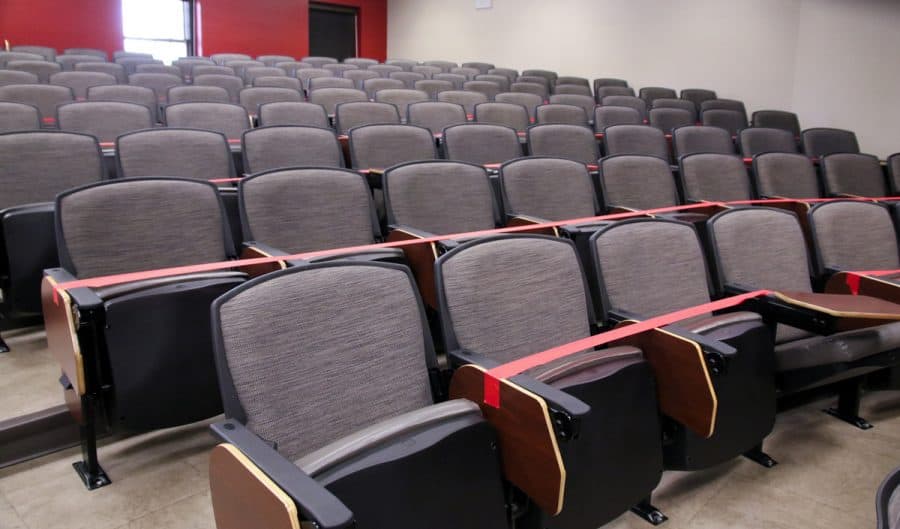The pandemic has completely upended student life. But how are faculty doing?
Professors and instructors often open their lectures by checking in on students. But who’s taking the time to check in on them?
More stories from Austin Hannon
More stories from Mariah Kravitz
March 7, 2021

More stories from Jeffrey Kelly | @jeffkellyjr
As the nation grappled with a global pandemic, an ever-changing social and political climate, natural disasters and many other harrowing events, a new semester began at The University of Alabama. It’s been one full of new experiences and guidelines—and one that introduced students to the idea that faculty, though in a different place in their lives, are not impervious to the effects of living in strange times.
“I think everybody is going through a really difficult time right now,” said Cassandra Simon, an associate professor in social work. “[We’re all trying] to pull it together as much as we can.”
Simon said COVID-19 and the other unexpected factors of this year created a “mix of different issues” to deal with.
On a personal level, she said she knows many people, students and faculty alike, who are grappling with anxiety and health-related issues, herself included.
“I have an 85-year-old mother with me, and I have health issues myself, and I’m also homeschooling two grandchildren at the same time,” Simon said. “I know a number of faculty members who are experiencing the same type of anxiety and difficulty.”
Along with those personal issues, she said it has been “quite difficult” to stay engaged in academic and professional endeavors while navigating the new socially distanced on-campus community. However, the most challenging shift has been in the classrooms.
Not only has it been difficult to acclimate to these unfamiliar online platforms, Simon said, but faculty have been left to juggle giving students the best educational experience and being fair and holding all students accountable.
“[You’ll have] students who don’t come to class, and you won’t be able to know if students aren’t coming because they’re sick [or] anxious, [if] it’s COVID-related issues in the family or with their significant others or if some students are using this as an opportunity to not come to class,” Simon said.
She said she just wants to be fair at the end of the day, but it’s hard to discern what someone is going through without communication.
David Deutsch, an associate professor and the director of undergraduate studies in the Department of English, stressed the importance of communication as everyone navigates their way around online learning.
“Students should always feel free to contact faculty with questions concerning assignments, grades and course material,” he said. “Faculty create the backbone of a course, and when students respond…, it helps to start a useful dialogue.”
He said having an open line of dialogue helps ease any anxiety that students may feel regarding class assignments, course registration, or any general questions that may arise.
Deutsch said he had seen a great deal of communication between faculty and students within the English department.
“I have been so impressed with the amount of work and dedication to students I have seen from faculty this semester,” Deutsch said.
Throughout this semester, Deutsch said he has noticed and appreciated how faculty have adapted to the new ways of connecting and educating students despite whatever technical issues arise.
“While the technologies and resources for teaching might look different, the course content remains as rigorous and as intellectually exciting, and as productive, as it has been in previous semesters,” Deutsch said.
Douglas Klutz, a criminology and criminal justice instructor, said this was difficult for some faculty who had never taught online before.
“I felt fortunate in that I had taught a lot of online classes before. I had a lot of the material already prepped, so it was fine for me,” he said. “I felt badly for the faculty members that had to prep 50% of an online class overnight.”
He said the transition to an online format was difficult because he missed interacting with his students in person. However, he valued still being able to do one-on-one Zoom meetings because it allowed him to still “have that connection and engagement.”
Simon said that though this semester was complicated and full of abnormalities, professors and instructors are working around the clock to make it work.
“It is a burden, but we all committed to teaching and doing the best job we can for our students,” she said.



